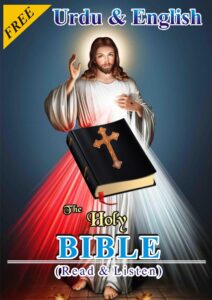The Bible in Urdu was translated by several individuals and organizations over the years. The Urdu translation of the Bible was primarily done to make the sacred text accessible to Urdu-speaking people, particularly in the Indian subcontinent, where Urdu is widely spoken.
people, particularly in the Indian subcontinent, where Urdu is widely spoken.
Key Contributors to the Urdu Bible Translation:
1. William Carey (1761–1834):
-
William Carey, a British Christian missionary, is credited with being one of the first to begin translating the Bible into various languages, including Urdu.
-
Carey is best known for his work on translating the Bible into Bengali, Odia, and Hindi, but his contributions to the Urdu translation project were foundational.
-
He initiated the translation of the New Testament into Urdu, and his work set the stage for later efforts to complete the translation.
2. The British and Foreign Bible Society (BFBS):
-
In the 19th century, the British and Foreign Bible Society (BFBS) played a major role in the translation and distribution of the Bible in various languages, including Urdu.
-
The BFBS worked with various scholars, missionaries, and linguistic experts to complete a full Urdu translation of both the Old Testament and the New Testament.
-
Their translation was considered an essential part of the efforts to bring Christian scriptures to the local population of the Indian subcontinent.
3. The Urdu Bible Society:
-
The Urdu Bible Society, an organization dedicated to the translation and publication of the Bible in Urdu, worked towards making the Bible more accessible to native Urdu speakers.
-
Their work includes the publication of the Urdu Bible in various editions, making it widely available for personal study and distribution in churches across Pakistan and India.
The Process and Evolution of Urdu Bible Translation:
-
The translation process was a collaborative effort involving linguists, scholars, and Christian missionaries who were fluent in both Urdu and the biblical languages (Hebrew, Aramaic, and Greek).
-
Earlier translations were often based on Persian, Arabic, or English versions of the Bible, as these were more widely known during the time.
-
Over the years, the translations were refined to make the text more culturally and linguistically accessible to Urdu speakers, ensuring that it remained faithful to the original Hebrew and Greek scriptures while maintaining clarity and accuracy in the Urdu language.
Modern Urdu Bible:
-
Today, the Urdu Bible is available in multiple formats, including print, audio, and digital versions, and is used by Christians in both Pakistan and India, where Urdu is a common language.
-
Many different versions of the Urdu Bible exist, some more formal, while others use a more contemporary, conversational style of Urdu to appeal to modern readers.
Conclusion:
The Bible in Urdu was translated by multiple scholars and missionaries over time, with significant contributions by William Carey and organizations like the British and Foreign Bible Society. The Urdu Bible continues to be a key text for Urdu-speaking Christians, with modern editions making it accessible in different formats and styles for a wide audience.
Ultimate Guide to the Urdu Bible: Read, Download & Understand the Word of God in Urdu
Introduction to the Urdu Bible What is the Urdu Bible? The Urdu Bible is the translated version of the Holy Scriptures (Old and New Testaments) in the Urdu language. Spoken…
Read more